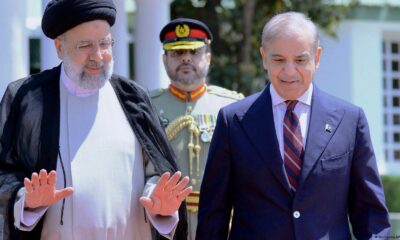- Minister of Finance Miftah Ismail says flash floods caused at least $10 billion in damage.
- Says various sectors of country’s already struggling economy have been impacted.
- Islamabad will first seek financial assistance from the international community.
Minister of Finance Miftah Ismail has said that the flash floods have caused at least $10 billion in damages to various sectors of the country’s already struggling economy.
Talking to the media, Miftah said that these were preliminary assessments that could change after conducting field surveys. Miftah stated that he does not currently have details on the losses suffered by each sector of the economy.
When asked if the country had taken the donors’ initial assessment of damage seriously, the minister replied in the negative. According to top officials, Islamabad will first seek financial assistance from the international community, and then it will assess the damages separately or jointly with the donors to determine the exact figures, but first and foremost, the government will focus on all-out relief efforts to rescue the victims.
In 2005 earthquake and 2010 floods, Pakistan and donors assessed the losses caused to different sectors of economy, and then the donors helped Islamabad during the reconstruction phase after relief and rehabilitation.
Now, the same strategy would be adopted. Initial assessments show that more than 1,000 people and millions of livestock have died in different parts of the country, besides damage to an untold number of houses, hotels and roods in major flood-hit areas of Punjab, Sindh, Balochistan and KP.
Miftah says PTI has put country’s economy at risk for politicking; hits back at Fawad, Hammad; says IK’s lust for power knows no bounds News Desk adds: Federal Minister for Finance and Revenue Miftah Ismail on Sunday fired back at PTI leaders Chaudhry Fawad Hussain and Hammad Azhar, saying the Pakistan Tehreek-e-Insaf (PTI) has put the country’s economy at risk and PTI Chairman Imran Khan’s lust for power has no bounds.
The finance minister, firing back at PTI leader Chaudhry Fawad Hussain for his critical remarks, tweeted: “Chaudhry sb, you have endangered Pakistan’s economy just for the sake of politics. This is very saddening. You were not like this before but the PTI has left very bad impact on you.”
Earlier, PTI leader Chaudhry Fawad Hussain tweeted: “It is simple that we can’t chop off our hands and give them to the IMF. No one trusts your corrupt government. Therefore put all the conditions of IMF programme before the nation. After getting the loans, you will run away, while the nation will have to bear the brunt. Therefore, there should be full disclosure of the IMF programme.”
Hitting back at PTI leader Hammad Azhar, Miftah tweeted: “You know this is absolutely untrue. Fawad said on TV a day before that such letters would be coming. Your successor called KP’s & Punjab’s finance ministries for these letters. Punjab refused. KP complied. Then, PTI leaked it. Shame really. IK’s lust for power knows no bounds.”
Earlier, Hammad Azhar tweeted: “From Miftah leaking Jhagra’s letter just before IMF meeting to the entire PDM doing nothing but photoshoots on the flood catastrophe. These artificial rulers are not only incompetent but also disgraceful.”

 Latest News2 days ago
Latest News2 days ago
 Latest News1 day ago
Latest News1 day ago
 Latest News1 day ago
Latest News1 day ago
 Latest News2 days ago
Latest News2 days ago
 Latest News1 day ago
Latest News1 day ago
 Latest News2 days ago
Latest News2 days ago
 Education2 days ago
Education2 days ago
 Latest News2 days ago
Latest News2 days ago
























